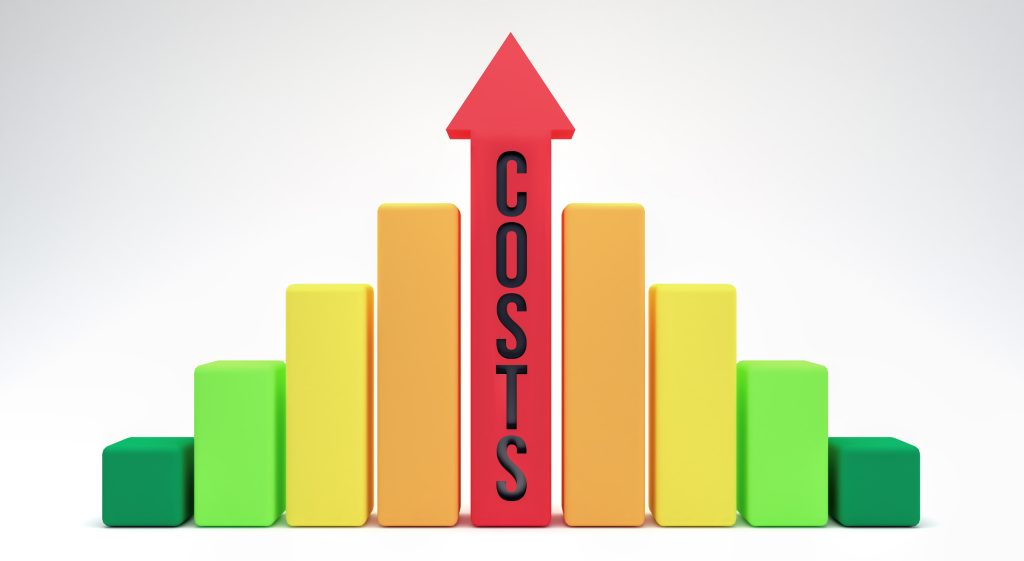
In 1960, a gallon of milk cost 36 cents, and today it costs $3.35 on average.[1] Inflation is to blame, and we could see higher inflation in the coming years. It’s important to have a sense of how much you’ll need to spend in retirement, but this is difficult when future costs and tax rates are unknown. How will you respond to rising costs in retirement – are you prepared?
Healthcare & Long Term Care Costs
Healthcare costs have been rising over the past 40 years, and this trend is expected to increase. It’s important to note that due to Medicare and Medicaid and the prevalence of private insurance, healthcare costs have increased partly because providers can increase prices when the consumer does not primarily bear the burden.[2] President Biden has proposed expanding Medicare and Medicaid, and the potential effects are unknown. Today, the average 65-year-old couple retiring today will need an estimated $295,000 to cover their healthcare costs[3], and that doesn’t include long-term care costs. In 2020, the median yearly cost for an in-home health aide was $54,912, and the median yearly cost for a private room in a nursing home was $105,850.[4] Retirees must have a plan for covering healthcare and long-term care costs, as well as other everyday expenses that could increase.
Everyday Items
The consumer-price index rose to 4.2% in April as compared to last year and was up from 2.6% for the year measured from the end of March.[5] We could see higher prices when it comes to travel, food, cars, and other common goods and services. Consider this if you plan to travel soon or in retirement. High inflation can hurt retirees who are living off their savings, especially when we have near-zero interest rates. While many economists don’t think we’ll return to the double-digital inflation rates of the ’70s, even low inflation can eat away at savings. After 20 years with a 2% inflation rate (the Fed’s “target” interest rate), $1,000,000 would have the buying power of only $672,971.[6] You may need to factor inflation into your retirement plan if everyday items, travel, and other expenses increase in cost.
Taxes
If you have a large IRA, 401(k), or another tax-deferred retirement account, you need to prepare for taxes on them. Consider that taxes may be at historic lows right now. $1.9 trillion was recently spent on COVID relief, and with plans to increase and expand infrastructure, Medicaid, and education, there is a potential for taxes to increase. Distributions from traditional retirement accounts such as IRAs, 401(k)s, 403(b), 457, and Thrift Savings plans are taxed as ordinary income. There are ways to help reduce your tax burden in retirement, such as a Roth conversion, real estate strategies, and integrating your tax planning and investing strategies.
How Much Income Will You Need In Retirement?
This is the big question, and inflation can make it more complicated. When figuring out if you have enough to retire, consider that the buying power of your savings could decrease. There are a number of potential strategies aimed at helping to protect your savings against inflation and cover big expenses. If you have questions about inflation and how rising costs can impact your retirement, contact us today and we can help make sure you’re on the right path for the future.
[1] https://www.usinflationcalculator.com/inflation/milk-prices-adjusted-for-inflation/
[2] https://www.investopedia.com/insurance/why-do-healthcare-costs-keep-rising/
[3] https://www.fidelity.com/viewpoints/personal-finance/plan-for-rising-health-care-costs
[4] https://www.genworth.com/aging-and-you/finances/cost-of-care/cost-of-care-trends-and-insights.html
[5] https://www.wsj.com/articles/us-inflation-consumer-price-index-april-2021-11620781266
[6] https://www.buyupside.com/calculators/inflationjan08.htm



